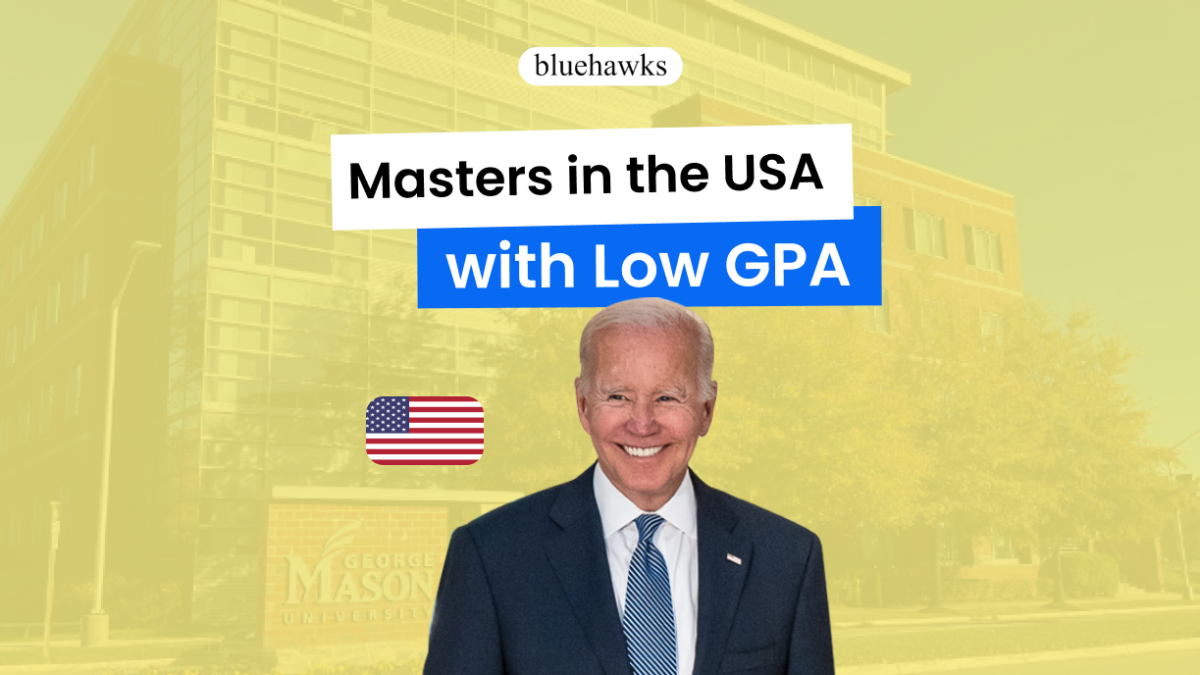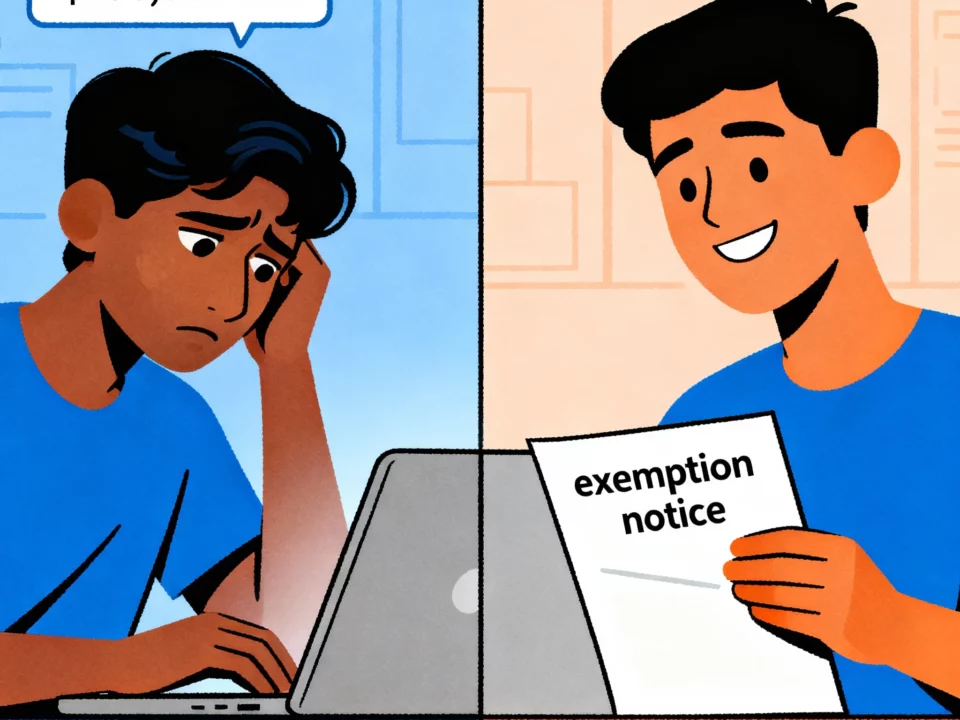Admission to a Master’s Program in the USA with a Low GPA

Admission to a Master’s Program in the USA with a Low GPA
Estimated reading time: 7 minutes
Students are often led to believe that a high GPA is the primary requirement for gaining admission into a prestigious university. However, this is not entirely true. Your overall profile matters just as much, if not more, than your GPA. For instance, a student with a 3.0 GPA and extensive co-curricular activities might have a better chance of admission compared to someone with a 3.2 GPA and no additional achievements.
Table of contents
With this understanding, many universities are lowering their GPA requirements to attract students with diverse profiles. We have compiled such colleges in our list of graduate schools with low GPA requirements. But before we explore the list, let’s delve into what constitutes a low GPA and how to enhance your application to improve your chances of admission.
What is a Low GPA?
The GPA scale commonly used by most universities around the world is the 4.0 GPA scale. If your academic score is in the form of percentages or grades, you need to convert it to this scale.
Generally:
- A GPA above 3.0 is considered good.
- A GPA below 3.0 is considered low, which may reduce your options but doesn’t eliminate them entirely.
How to Get into Grad School with a Low GPA
Universities today are more open-minded about their admissions criteria. They often consider the overall profile of an applicant, including projects, internships, work experience, and publications. Here are some strategies to bolster your application if you have a low GPA:
- Explain Yourself
- Be upfront about your GPA in your Statement of Purpose (SOP) or a separate Explanation Letter. Explain any circumstances that led to a low GPA and emphasize your commitment to succeeding in your chosen field.
- Highlight Specific Subjects
- If you have excelled in particular subjects relevant to your intended graduate program, highlight these in your application.
- Score High in GRE or GMAT
- High scores in standardized tests like the GRE or GMAT can compensate for a lower GPA and demonstrate your academic capabilities.
- Focus on Other Application Components
- Strengthen your application with stellar references, detailed descriptions of your projects, internships, work experience, and publications.
- Enroll in Additional Courses
- Taking relevant courses and earning high grades can demonstrate your academic ability and commitment to your field of study.
- Consider Additional Coursework
- Some colleges may require you to take additional coursework after admission. Be prepared to take on this challenge if needed.
List of Graduate Schools with Low GPA Requirements
Here is a list of graduate schools in the USA that accept students with lower GPA scores:
Which University Should I Apply To?
When selecting universities, it’s crucial to be strategic and well-informed. The list of graduate schools with low GPA requirements is extensive, but not exhaustive. If there is a university or program that interests you but isn’t on this list, check their official website or the program’s page for specific GPA requirements.
Tips for Selecting Universities:
- Choose universities and programs that genuinely interest you.
- Consider the curriculum and faculty of the program.
- Look beyond GPA requirements; focus on how the program aligns with your career goals.
Documents Required
The documents required for admission will vary depending on the course and the university you are applying to. However, the following are standard documents that you will typically need:
- Completely filled application form
- Personal statement
- Explain your motivation for choosing the program and university.
- Explain any low grades and relevant skills and experience.
- Describe your future career aspirations and how the program will help you achieve them.
- Academic transcripts
- Copy of bachelor’s degree or equivalent
- Copy of English language test scores(IELTS/ DET/ PTE/ TOEFL)
- Copy of GMAT/GRE test scores
- Self-attested X & XII marksheets and certificates
- 2 references (if required)
- Copy of passport
- Resume
- Portfolio (for design courses)
- Research proposal (for PG research programs)
Conclusion
Securing admission to a master’s program in the USA with a low GPA is indeed challenging, but it is not impossible. By focusing on strengthening other aspects of your profile—such as your standardized test scores, personal statement, and relevant experiences—you can improve your chances of being accepted. Be strategic in selecting universities, be thorough in your documentation, and be honest about your academic history. With determination and careful planning, you can achieve your academic and career goals despite a low GPA.
Ready to take the next step?
At bluehawks, we understand that navigating the complexities of international education can be overwhelming. That’s why our expert team is here to support you every step of the way.
From personalized consultations to comprehensive test preparation resources, we offer a range of services designed to help you achieve your academic goals. Whether you’re facing challenges with language proficiency or need guidance on selecting the right university, our team is dedicated to providing you with invaluable advice and assistance.
Don’t let language barriers or financial concerns hold you back from pursuing your dreams. Contact bluehawks today and let us help you chart your course to a brighter, more fulfilling future. Together, we can turn your aspirations of studying in the UK into a reality!
Frequently Asked Questions
Yes, many universities consider the overall profile of an applicant, including standardized test scores, references, and relevant experience.
Various online tools and conversion charts can help you convert your percentage to a GPA on the 4.0 scale.
Universities also consider standardized test scores, work experience, projects, publications, and extracurricular activities.
Yes, it’s better to address it and explain any mitigating circumstances rather than avoiding the topic.



